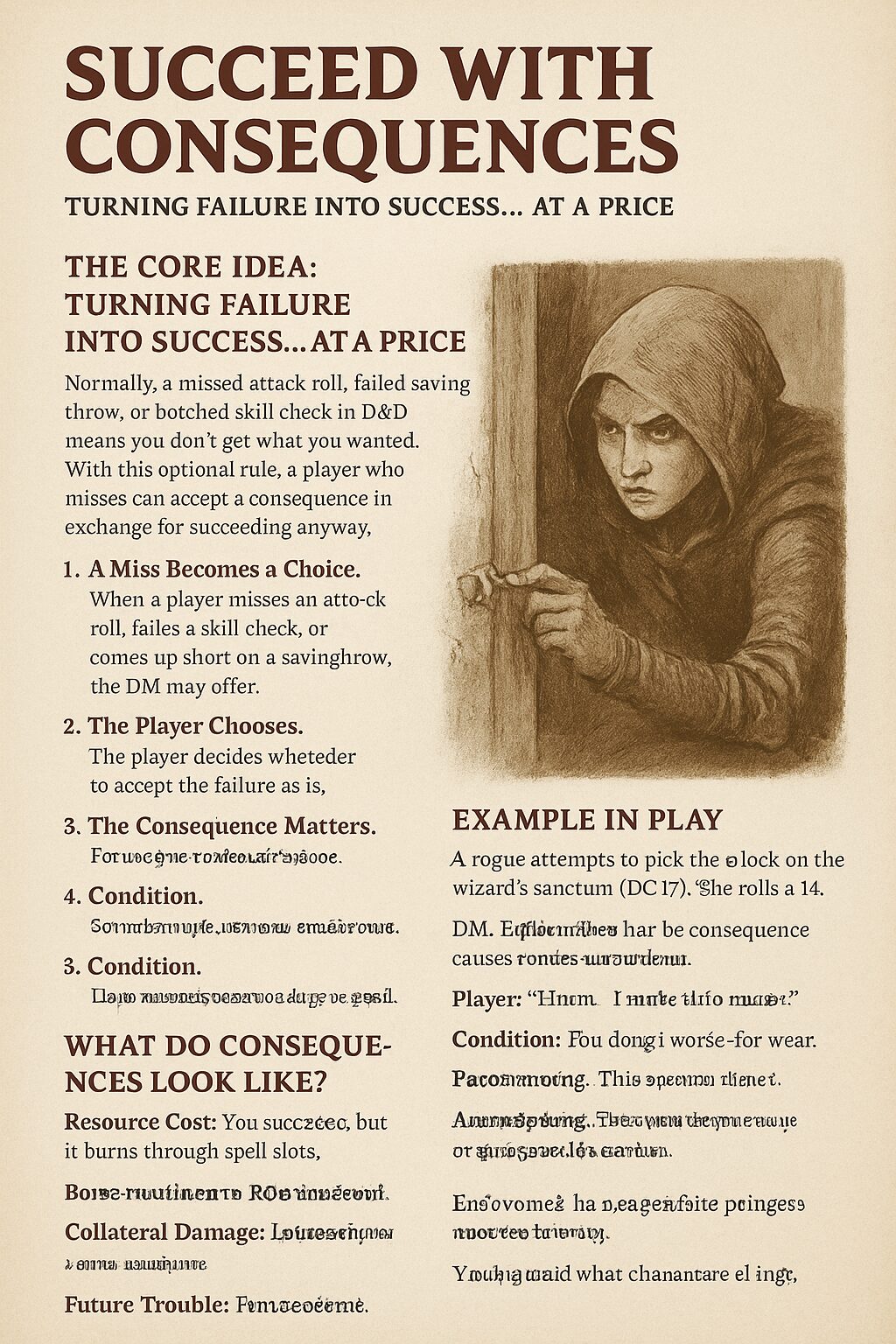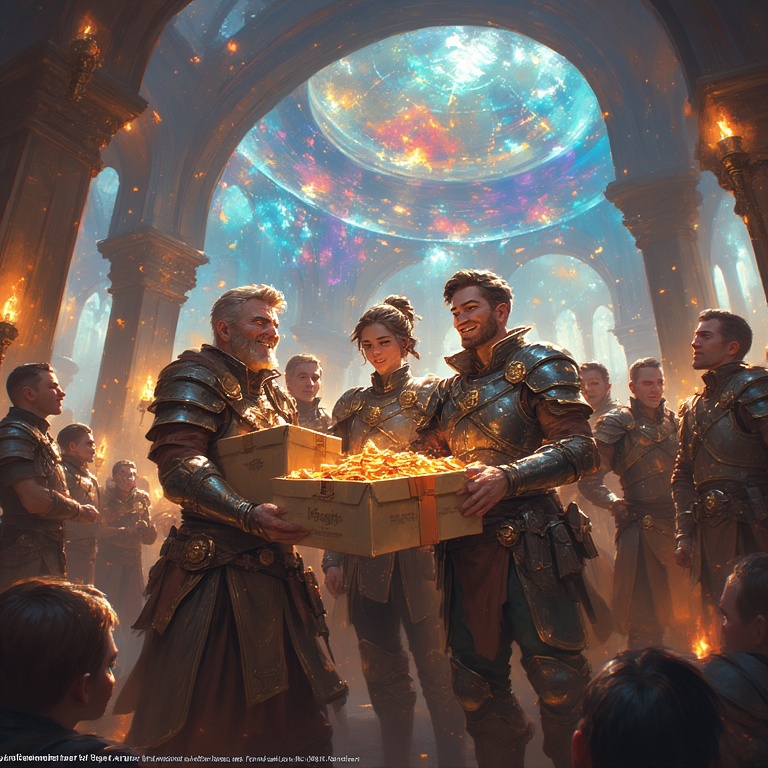
Optional Rules: Succeeding with Consequences in D&D
Dungeons & Dragons, at its core, has a fairly binary resolution mechanic. You roll a d20, add modifiers, and compare the result against a DC or AC. If you meet or beat the target, you succeed; if not,  you fail. It’s a simple and elegant system, but it often leaves little narrative space for “messy” or partial results.
you fail. It’s a simple and elegant system, but it often leaves little narrative space for “messy” or partial results.
Other RPGs, such as those powered by the Powered by the Apocalypse (PbtA) engine, thrive in that space. A roll can mean success with a cost, success with a complication, or failure with opportunity. This keeps tension high and allows failure to still push the story forward.
So—what if we borrowed that concept and wove it into D&D’s framework?
The Core Idea: Turning Failure into Success… at a Price
Normally, a missed attack roll, failed saving throw, or botched skill check in D&D just means you don’t get what you wanted. With this optional rule, a player who misses can instead choose to accept a consequence in exchange for succeeding anyway.
Mechanically, it works like this:
-
A Miss Becomes a Choice.
When a player misses an attack roll, fails a skill check, or comes up short on a saving throw, the DM may offer: “You fail, or you can succeed with a consequence—your choice.” THis can be done if you are close, say 1-3 points away. Or at any number but the greater the difference the harsher the consequence. -
The Player Chooses.
The player decides whether to accept the failure as-is, or to “buy” success by taking on a complication. -
The Consequence Matters.
The consequence should sting. It might cost resources, cause collateral damage, or leave the character vulnerable.
This keeps the dice rolls meaningful while ensuring players aren’t always flat-stopped by bad luck.
What Do Consequences Look Like?
Here are some categories you can use when deciding on consequences:
-
Resource Cost: You succeed, but it burns through spell slots, ammunition, potions, or even hit points.
Example: You force open the lock, but your thieves’ tools snap—cross that set off your sheet. -
Collateral Damage: The success happens, but there’s fallout.
Example: Your sword strike cuts down the orc—but your blade lodges in its armor, leaving you disarmed until you can retrieve it. -
Future Trouble: The consequence doesn’t hit now, but it sets up problems later.
Example: You sneak into the fortress, but you leave behind a clear sign someone’s been there. The guards will be on high alert later. -
Positioning: You succeed, but end up in a dangerous spot.
Example: You make the jump across the chasm, but barely—dangling by your fingers as an enemy looms overhead. -
Condition: The success leaves you worse for wear.
Example: You parry the ogre’s blow and land your own strike, but the impact leaves you stunned for a round.
Guidelines for DMs
-
Don’t Overuse It. This is a spice, not a main course. Offer it when a miss would stall the action or when consequences make the fiction richer.
-
Make Consequences Thematic. Tie them to the environment, the enemies, or the character’s personal weaknesses.
-
Let Players Decide. Always give them the choice: take the failure, or accept the cost. Never force consequences on them for free.
-
Balance Severity. A consequence shouldn’t be worse than outright failure. It should sting, not crush.
Example in Play
The rogue attempts to pick the lock on the wizard’s sanctum (DC 17). She rolls a 14.
-
DM: “That’s a failure. But you could succeed with a consequence: you get the door open, but your tools snap and the tumblers make a loud clack. Someone will probably notice.”
-
Player: “Hmm… I’ll take it. Better to be in than locked out.”
The lock opens, the story moves forward, and there’s new tension: will the guards come investigate?
Why Bring This Into D&D?
This optional rule fills the space between D&D’s binary pass/fail and PbtA’s gradient of outcomes. It makes failure more interesting without undermining the importance of rolling dice.
More importantly, it empowers players. They get to decide whether a miss stands or whether they’ll take on extra risk for glory. That sense of agency can be thrilling—and can make your table’s stories more dramatic, cinematic, and memorable.
Closing Thought:
Failure should never be boring. With “succeed with consequences,” every roll has teeth—and every decision has weight.
Thanks for reading. Until Next Time, Stay Nerdy!!











No Comments